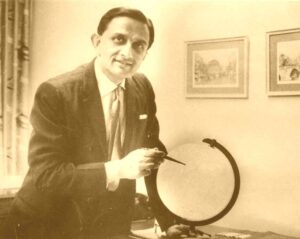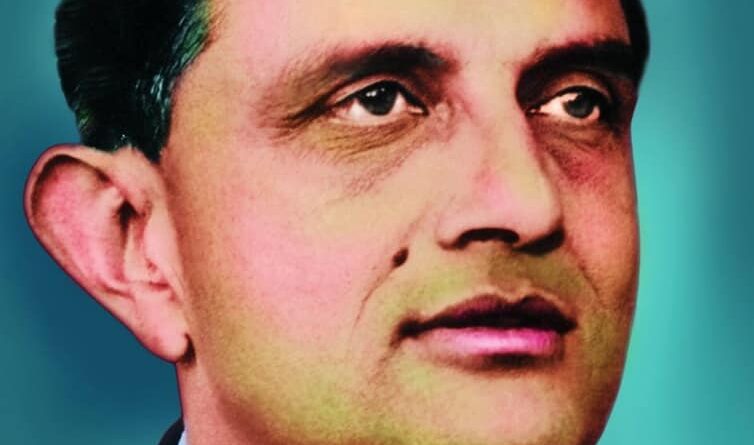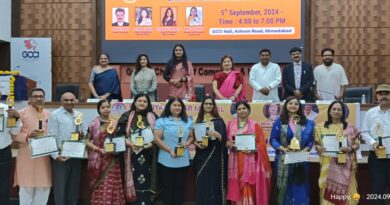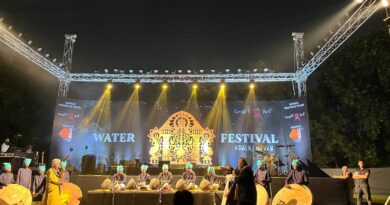BILKULONLINE
ISRO affectionately commemorates the birthday of visionary space scientist, Dr. Vikram A Sarabhai. His remarkable contributions laid the foundation for Indian Space Programme. His legacy lives on as ISRO upholds his vision and mission.

Dr.Sarabhai is considered as the Father of the Indian space program; He was a great institution builder and established or helped to establish a large number of institutions in diverse fields. He was instrumental in establishing the Physical Research Laboratory (PRL) in Ahmedabad : after returning from Cambridge to an independent India in 1947, he persuaded charitable trusts controlled by his family and friends to endow a research institution near home in Ahmedabad. Thus, Vikram Sarabhai founded the Physical Research Laboratory (PRL) in Ahmedabad on November 11, 1947. He was only 28 at that time. Sarabhai was a creator and cultivator of institutions and PRL was the first step in that direction. Vikram Sarabhai served of PRL from 1966-1971.
He was also Chairman of the Atomic Energy Commission. He along with other Ahmedabad-based industrialists played a major role in the creation of the Indian Institute of Management, Ahmedabad.
Some of the most well-known institutions established by Dr. Vikram Sarabhai are:
Physical Research Laboratory (PRL), Ahmedabad
Indian Institute of Management (IIM), Ahmedabad
Community Science Centre, Ahmedabad
Darpan Academy for Performing Arts, Ahmedabad (along with his wife)
Vikram Sarabhai Space Centre, Thiruvananthapuramm
Space Applications Centre, Ahmedabad (This institution came into existence after merging six institutions/centres established by Vikram Sarabhai)
Faster Breeder Test Reactor (FBTR), Kalpakkam
Varaiable Energy Cyclotron Project, Calcutta
Electronics Corporation of India Limited (ECIL), Hyderabad
Uranium Corporation of India Limited (UCIL), Jaduguda, Bihar
Indian Space Program
The establishment of the Indian Space Research Organisation (ISRO) was one of his greatest achievements. He successfully convinced the government of the importance of a space programme for a developing country like India after the Russian Sputnik launch. Dr. Vikram Sarabhai emphasized the importance of a space program in his quote:
“There are some who question the relevance of space activities in a developing nation. To us, there is no ambiguity of purpose. We do not have the fantasy of competing with the economically advanced nations in the exploration of the moon or the planets or manned space-flight.
But we are convinced that if we are to play a meaningful role nationally, and in the community of nations, we must be second to none in the application of advanced technologies to the real problems of man and society.”
Dr. Homi Jehangir Bhabha, widely regarded as the father of India’s nuclear science program, supported Dr. Sarabhai in setting up the first rocket launching station in India. This center was established at Thumba near Thiruvananthapuram on the coast of the Arabian Sea, primarily because of its proximity to the equator. After a remarkable effort in setting up the infrastructure, personnel, communication links, and launch pads, the inaugural flight was launched on November 21, 1963 with a sodium vapour payload.
As a result of Dr Vikram A Sarabhai’s dialogue with NASA in 1966, the Satellite Instructional Television Experiment (SITE) was launched during July 1975 – July 1976 (when Dr.Vikram Sarabhai was no more).
Dr. Sarabhai started a project for the fabrication and launch of an Indian Satellite. As a result, the first Indian satellite, Aryabhata, was put in orbit in 1975 from a Russian Cosmodrome.
Dr.Sarabhai was very interested in science education and founded a Community Science Centre at Ahmedabad in 1966. Today, the Centre is called the Vikram Sarabhai Community Science Centre
Dr.Vikram Sarabhai was born on 12 August 1919 in the city of Ahmedabad, Gujarat State in western India. The Sarabhai family was an important and rich Jain business family. His father Ambalal Sarabhai was an affluent industrialist and owned many mills in Gujarat. Vikram Sarabhai was one of the eight children of Ambalal and Sarla Devi.
Sarabhai matriculated from the Gujarat College in Ahmedabad after passing the Intermediate Science examination.
After that he moved to England and joined the St. John’s College, University of Cambridge. He received the Tripos in Natural Sciences from Cambridge in 1940.
With the escalation of the Second World War, Sarabhai returned to India and joined the Indian Institute of Science in Bangalore and began research in cosmic rays under the guidance of Sir C. V. Raman, a Nobel Prize winner.
He returned to Cambridge after the war in 1945 and was awarded a PhD degree in 1947 for his thesis titled Cosmic Ray investigation in Tropical Latitudes.
Dr. Vikram Sarabhai died on 30 December 1971 at Kovalam, Thiruvananthapuram, Kerala.
The Vikram Sarabhai Space Centre, (VSSC), a research institute specialising in solid and liquid propellants for rockets located in Thiruvananthapuram (Trivandrum), capital of Kerala state, is named in his memory.
In 1974, the International Astronomical Union at Sydney decided that a Moon Crater BESSEL in the Sea of Serenity will be known as the Sarabhai Crater.



